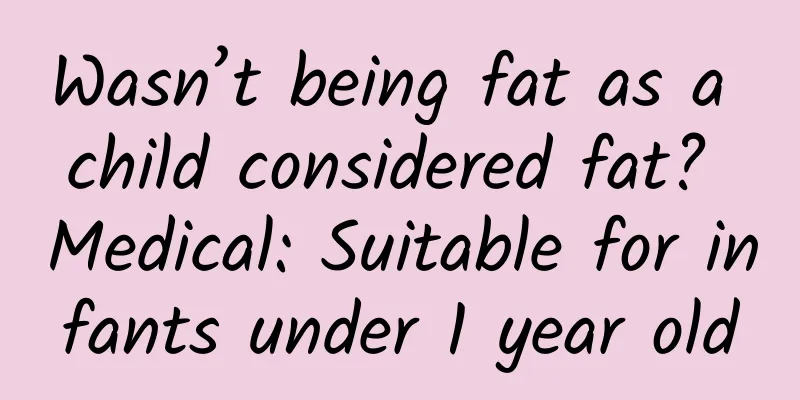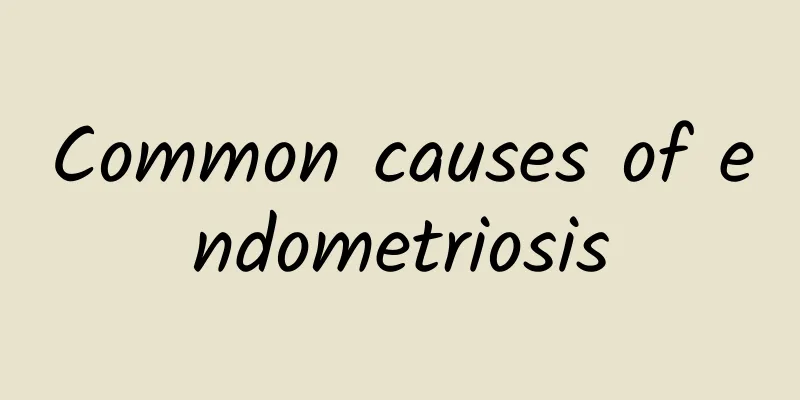Wasn’t being fat as a child considered fat? Medical: Suitable for infants under 1 year old

|
Nowadays, when "metabolic syndrome" has become a popular subject, many parents are worried about their children's obesity. Different from the previous generation who prefer fair and tender babies, the two generations often argue in pediatric clinics about whether infants and young children are too fat or thin. Nowadays, when "metabolic syndrome" has become a popular subject, many parents are worried about their children's obesity. Different from the previous generation who prefer fair and tender babies, the two generations often argue in pediatric clinics about whether infants and young children are too fat or thin. Compared to Japanese children, Taiwanese children seem to have a higher proportion of sturdier bodies. Parents or elders I met in Japan rarely worry about their children not being tall enough or heavy enough, especially girls. I think it may be because Japanese society prefers petite women. Obesity cells determined before one year old? "Being fat when a baby is young is not considered fat" is a phrase often said by elders who love chubby babies. But in fact, is there any medical evidence to answer this question? 40 years ago, a British scholar (Brook) proposed in 1972 that "the number of fat cells is determined before the age of one, so obesity should be prevented from the beginning." This statement has deeply influenced most people, even though many scientists later continued to study and found that fat cells will increase regardless of whether one is obese before the age of one. In addition, there is also much controversy over the definition of obesity in infants and young children. The general consensus in academia is that infants and young children under one year old are not included in the age range defined as obesity. In the past, most studies in this area focused on Europe and the United States, and racial differences can also affect statistical results. Japanese scholars have also found that after Japan began to introduce European and American brands of milk powder, the average weight of Japanese babies increased significantly. Therefore, it can be inferred that the proportion of obese people in Europe and the United States is higher than that in Asia, which may be related to the diet they consume. After the introduction of milk powder, weight gain Japanese scholars have also found that after Japan began to introduce European and American brands of milk powder, the average weight of Japanese babies increased significantly. Therefore, it can be inferred that the proportion of obese people in Europe and the United States is higher than that in Asia, which may be related to the diet they consume. On the other hand, even with the same dietary content, different races (genes) will have different results. Therefore, when facing obesity and nutrition problems among infants and children, it is still necessary to consider factors such as living environment (dietary content) and ethnicity. According to the current recommendations of the Japanese Society of Child Endocrinology, infants and young children under one year old are not included in the definition of obesity. In other words, there is no special restriction on the food intake for infants and young children under one year old. Let them eat as much as they want, and they will naturally stop eating when they are full. If parents are worried that their children are consuming too many calories, they should actively play with them to increase calorie consumption. But after one year old, you need to start paying attention to total calorie intake. Here are a few general principles for your reference: do not be picky eaters, avoid animal fats and sugary drinks, be sure to eat breakfast, do not develop the habit of eating midnight snacks, and use light seasonings and focus on the original flavor of the food. On the website of the Japanese Society of Pediatric Endocrinology, there is an obesity (fatness) determination curve that can be found (Note), which is a curve calculated based on height and weight. In principle, obesity is a continuous and progressive concept, which progresses gradually from normal weight to overweight to slightly obese to obese to extremely obese. Childhood obesity often leads to schoolchild obesity, and schoolchild obesity is often positively correlated with adult obesity. Skipping breakfast can make you fat! In addition to eating habits, lifestyle habits also have a significant impact on childhood obesity. A study conducted by Hokkaido University in 1998 suggested that "lifestyle habits are the key to obesity." The statistical results show that the proportion of people who go to bed late and get up late, skip breakfast, and do not like to exercise is significantly higher in the obese group than in the control group. After the child is one year old, develop the habit of going to bed at 9 o'clock in the evening, and no later than 10 o'clock. On the one hand, develop the habit of going to bed early and getting up early, and on the other hand, eliminate the opportunity for children to eat midnight snacks. A detailed analysis of the reasons shows that going to bed late and getting up late is usually because of coordinating the work and rest schedule of adults. Going to bed late leads to an increase in the proportion of eating midnight snacks, and getting up late leads to an increase in the proportion of skipping breakfast. Disliking exercise and obesity are mutually causal. Because of being overweight, it is often difficult to get good results in games or sports competitions. Children therefore lack a sense of accomplishment or feel ashamed of failure, and further reject related activities. This shows that lifestyle habits and health are closely related. An interesting report by NHK (2013) also confirmed this theory. After the Fukushima nuclear disaster, in order to prevent children from being exposed to excessive radiation, children were banned from playing outdoors for a period of time. The survey found that the obesity rate of children in the Fukushima area was significantly higher than that of the whole country. Cultivate exercise habits from an early age The saying "being fat as a child is not considered fat" does apply to infants and young children under one year old, based on the results of various experimental statistical data. However, when you enter the weaning period and start eating supplementary foods as the staple food, you must develop healthy eating habits and control your total calorie intake. In addition to proper eating habits, exercise habits are also essential for weight control. This is how I raise my own children: 1. After the child turns one year old, develop the habit of going to bed at 9 o'clock in the evening, and no later than 10 o'clock. 2. On the one hand, develop the habit of going to bed early and getting up early, and on the other hand, eliminate the opportunity for children to eat midnight snacks. 3. Be sure to eat breakfast every morning, and try to balance the three meals as much as possible. Japanese schoolchildren also have more outdoor space to play after school than children in Taipei. These may be the factors that cause the obesity rate among children in Taipei to be higher than that in Japan. Taipei children have high calories and little exercise Compare the lunch menu at my own elementary school with the lunch menu at elementary schools in Taipei City. I found that the total calories in Taipei are slightly higher than in Japan, and the proportion of red meat (pork, beef) is also higher, while Japan is almost entirely based on fish. In terms of seasoning and cooking methods, Taiwanese prefer frying or stir-frying, while Japanese prefer stewing or blanching. Japanese schoolchildren also have more outdoor space to play after school than children in Taipei. These may be the factors that cause the obesity rate among children in Taipei to be higher than that in Japan. Although my own child is only in kindergarten at the oldest, when choosing a kindergarten I particularly emphasized the need for a large outdoor play space rather than academic curriculum. Children with chubby cheeks are cute, but if they are too fat, they will inevitably fall into the dilemma of being called "ジャイアン" (Gian) or "ジャイ子" (Gianmei)! |
<<: The calories are amazing! 100g tofu ≒ 1 bowl of rice
>>: Office workers slim belly 2-step chair exercise
Recommend
Diet after miscarriage
Many friends who have had miscarriages do not pay...
Does an abortion have to last more than 40 days?
Does an abortion have to last more than 40 days? ...
What are the early symptoms of ovarian cysts? Why do ovarian cysts cause infertility?
What are the early symptoms of ovarian cysts? Why...
These 3 reasons can cause early habitual miscarriage
The incidence of habitual abortion is currently s...
Don't use drugs to treat severe obesity indiscriminately
Weight control medication prescription Modern peo...
The dangers of thick endometrium
The dangers of thick endometrium: Endometrial thi...
What are the preventive measures for female cervical erosion? Three preventive measures for female cervical erosion
Since cervical erosion occurs very frequently in ...
Can I recover completely after intestinal atresia surgery?
Whether intestinal atresia can be fully recovered...
What is the relationship between uterine fibroids and cysts? Are there any connections between uterine fibroids and cysts?
What is the relationship between uterine fibroids...
Choose the right method to prevent vaginal fungus
Vaginal candidiasis is also a type of gynecologic...
Integrate weight loss into your life! 12 ways to lose weight in the office
Experts have come up with a set of 12 simple, hel...
Sarcopenic obesity is associated with metabolic syndrome! Liu Boen reveals: Sarcopenia obesity may lead to 7 major diseases
Elderly people are more susceptible to sarcopenia...
What are the symptoms of early dysmenorrhea
Dysmenorrhea is a very common phenomenon among wo...
Is the second degree of female cervical erosion serious? How can female cervical erosion be cured?
Is second degree cervical erosion serious? Second...
What are the main hazards of suffering from uterine fibroids?
Among the many types of gynecological diseases, u...









